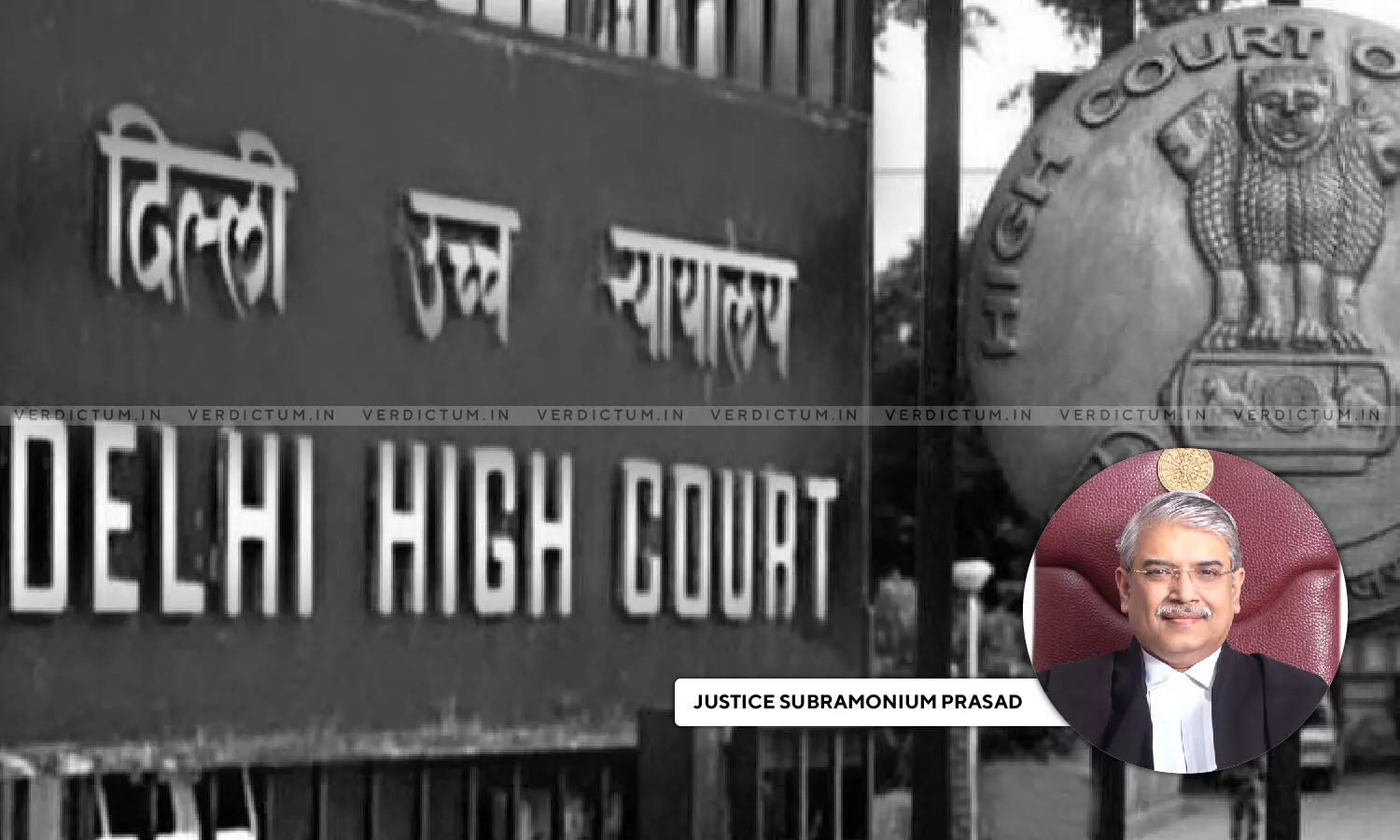
Delhi HC Imposes ₹10K Costs On Man Claiming Property Rights To 'Avibhajya Rajya of Beswan' As Its Ruler
 |
|The Delhi High Court imposed a cost of Rs. 10,000/- on a man claiming property rights to Beswan Avibhajya Rajya as its ruler.
According to him this property consists of United Province of Agra running between river Yamuna and Ganga from Agra to Meerut, Aligarh, Bulandshahr including, 65 revenue estates of Delhi Gurgaon and Uttarakhand.
The court said that the Petitioner has not been able to establish the area under the control of Beswan family and the right of the Petitioner succeeding to the Princely State of Beswan family.
A Single Bench of Justice Subramonium Prasad said, “Writ courts cannot enter into a field of investigation which is more appropriate for the Civil Court in a properly contested suit. Questions of fact which require determination, where rival claims of the parties have to be decided, which are purely factual, can be adjudicated in a properly instituted suit and the proceedings under Article 226 of the Constitution of India is not the proper remedy. The present writ petition is nothing but an abuse of the process of law and complete waste of judicial time.”
Advocate M L Sharma appeared on behalf of the petitioner while CGSC Ajay Digpaul appeared on behalf of the respondent.
In this case, the petitioner was the only surviving son of the four sons of Raja Thakur Mat Matang Dhwaj Prasad Singh and, therefore, claimed to be the present Ruler of the Beswan Avibhajya Rajya. He also placed reliance on the fact that the British Government passed Raja Mahendra Pratap Short title Singh Estates Act, 1923 and granted Sanad in favour of Prem Pratap Singh. It was stated that in 1960 the Union of India vide Bill, Sh. Mahendra Pratap Singh Estates (Repeal) Bill, 1960, has repealed the Act, 1923 and has withdrawn the Sanad.
The High Court in the above regard observed, “This Court is of the opinion that this Writ Petition raises pure questions of facts and the Petitioner has not been able to establish the area under the control of Beswan family and the right of the Petitioner succeeding to the Princely State of Beswan family. The Petitioner has to substantiate his contentions by taking appropriate proceedings, lead documentary and oral evidence and prove his case. Writ petition is not the remedy for the relief as claimed by the Petitioner.”
The Court said that the writ petition is completely misconceived and that the claims raised by the petitioner cannot be gone into or adjudicated in a writ petition.
“The Petitioner has only filed some maps, historical accounts, which in the opinion of this Court does not indicate any existence of the Beswan family or existence of any right of the Petitioner. The judgments, extracts from Wikipedia report, documents of political integration of India, Instrument of Accession also do not substantiate the case of the Petitioner”, noted the Court.
Accordingly, the Court dismissed the writ petition and imposed Rs. 10,000/- cost on the petitioner.
Cause Title- Kunwar Mahender Dhwaj Prasad Singh v. Union of India (Neutral Citation: 2023:DHC:9129)